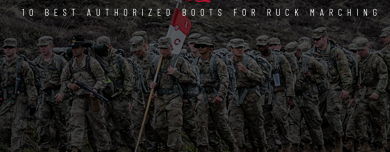
One of the most unpleasant aspects of being a supervisor is when you are forced to discipline a co-worker. Few people enjoy punishing others, especially when it has the possibility of affecting their livelihood. Unfortunately, it is not only part of your responsibilities; it is also a necessary part. While the supervisor who rarely disciplines may be held in higher regard by their subordinates, the supervisor who never disciplines has no business being a supervisor to begin with.
Supervisors’ Role
Supervisors play many important roles within a paramilitary organization. Of the many duties on a supervisor’s plate, it would be hard to argue that the main course is anything other than good order and discipline. Sure, some will throw around phrases such as “morale,” “unit cohesiveness” or “operational readiness” and I agree that each and every one of these is important. However, without good order and discipline, there will be an eventual and noticeable decline in morale, unit cohesiveness and operational readiness across the board. However, discipline is often the hardest part of being a supervisor and something many will go out of their way to avoid. But, it does not need to be as distressful as many make it out to be. Done properly, discipline can be a positive experience for everyone involved, including the employee, and can improve the agency or unit as a whole.
Over the years I have worked for some really good leaders and I have worked for pencil-pushing bureaucrats who would find their selves squarely at the opposite end of the spectrum. The good one shared some similar traits, which I have attempted to adopt and will now share for the good of the order:
Have a defined set of expectations and share them with your subordinates.
Nothing frustrates an employee more than never knowing what they can or cannot do, especially if making the wrong decision can lead to discipline. As a supervisor, you should make every effort to ensure your expectations, both day to day and mission specific, are clear.
Be approachable
Having expectations is a must, and hopefully those expectations are clear to everyone involved, but if an employee does not understand a task, assignment or expectation they must have the ability to obtain clarification. They must be able to come to you with questions.
Take responsibility for your own actions and decisions
If it has ever happened to you, then you understand how frustrating it is to have a supervisor throw you under the bus. A good leader will not only make decisions when the time comes, they will also take responsibility when their decisions turn out to be the wrong ones. Although deflecting blame may appear to be career protection, in the long run, honesty will be better received by those both up and down your chain of command.
Do as you say, say as you do
Although there are times when rank has its privilege and a supervisor may be allowed some latitude in specific areas, rank also carries with it the responsibility to lead by example. Examine units or agencies with greater than normal instances of discipline and it is likely you will find that the supervisors failed to establish a culture built upon establishing one set of standards for everyone.
Mistakes happen
Face it, we are all human and humans make mistakes. While not all mistakes can be overlooked, not all mistakes require a court of inquiry to be convened either. There are two phrases that I have learned, one as a lowly grunt and one as a supervisor, and both sometimes explain everything – “Better to ask forgiveness than permission” and “Shit happens.” Sometimes a subordinate does the wrong thing for the right reason and sometimes you need to address this by simply saying “Not again.”
Disclaimer: The content in this article is the opinion of the writer and does not necessarily reflect the policies or opinions of US Patriot Tactical.





